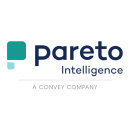Despite using similar phrases like “agile methodologies” and “dual-track scrum,” no two tech companies take the same approach to launching new products. Instead, methods vary widely and can be driven by anything from customer pain points to company culture. We spoke with six Chicago tech companies to learn about how they go about launching new products.

Keeper Security is a cybersecurity company whose products help consumers and businesses keep their passwords, documents and data safe. To head of product Billy VanCannon, the company’s global reach and belief that users should have complete control over their data are two of the things that make its approach to product development unique.
How do you identify a need for a new product or feature?
We’re fanatic about feedback. We monitor reviews, send out targeted surveys and talk to as many users as possible. We also have a group of power users called Keeper Ambassadors who try beta versions of Keeper.
Our global support team engages with users daily, and our enterprise customer salesforce has a direct line to product management and engineering. All these free-flowing information veins and our open communication style keep the technical side in contact with the needs and wants of our users and help drive our roadmap.
What makes Keeper Security’s approach to product development unique?
Every time we consider a new product or feature, the first thing we ask ourselves is if it can be done in a way that ensures user privacy. Sometimes the idea is killed right there or we look for ways to implement the idea without exposing information.
We’re also available in 21 languages in 233 countries and territories on every device. Understanding the needs of users and vendors around the globe is another thing that makes our approach to product development different.
What do you look for in product managers?
We look for candidates with technical backgrounds. We need them to completely understand the product so they can articulate what customers need while also understanding what is technically possible. We also stress a high degree of business acumen. Keeper product managers must be well versed in and aware of the market and customer needs, and be amazing relationship managers and highly skilled leaders.

Pareto Intelligence is an analytics and technology solutions provider that helps health insurers and care providers better assess risk and improve financial performance. Product manager Zain Jafri said the startup’s unique origins give it an edge when it comes to deciding what new features and software to build.
How do you identify a need for a new product or feature?
We use a dual-track approach to identify new products and features for our platform. This balances the need to respond to the direction of the market, feedback received from our customers and our strategic goals to continually bring new and innovative solutions to the market.
To succeed and differentiate ourselves in the long term, we believe we need to respond to, and align with, what the market and our customers are ultimately looking for, while not becoming too complacent with the current position and direction of the market.
What makes Pareto Intelligence's approach to product development unique?
One of Pareto Intelligence’s unique attributes, which also applies to our product development process, is the fact that we were born out of, and are affiliated with, a management consulting company: HealthScape Advisors.
Since our consulting arm is working with our customers on a day-to-day basis, we have a direct line of sight into how our customers might use our solutions. This also gives us the opportunity to test and validate new releases with clients and consultants before bringing them to market.
What do you look for in product managers?
We want product managers who have a good sense of the market, constantly think on their feet, work to understand the needs of customers and prospects and who stay ahead of competition. The role requires a lot of cross-functional collaboration, whether that’s helping the engineering team solve for market needs or working with operations to ensure good customer service.
Having experience in the healthcare industry and a technical background helps a lot, too. Being able to adapt to change is a must, as is the ability to balance near-term wins with long-term strategy.

Paylocity builds cloud-based payroll, HR and talent management software for companies across the country. According to product manager Rusty Schafer and product owners Grant Cline and Heidi Spychalski, part of what makes Paylocity’s approach to product development different is that users are seen as “co-creators,” not just customers.
How do you identify a need for a new product or feature?
Schafer: We built a feedback mechanism into our product that allows us to hear directly from users and methodically track requests gleaned from our customer service team. We also spend a good deal of time with our sales team to understand their interactions with prospects. Lastly, we are very aware of trends in the market thanks to research, attending industry events, conventions and so on.
Spychalski: Co-creating products with our clients is deeply ingrained in our product development process. Regular communication with clients is vital to understanding pain points and opportunities for improvement. That being said, products or features that meet client needs but do not align with the company’s mission are doomed from the start. The most successful product leaders find ways to honor their brand while delighting customers.
What makes Paylocity's approach to product development unique?
Schafer: First, we are very close to our sales team and their experiences in the field help drive our roadmap. Second, we’re very willing to deploy an early, slimmed-down version of a feature or product and partner with our customers to be co-creators in shaping the finished product.
Cline: We take on large projects by breaking them down into consumable chunks, first identifying the smallest piece we can build that will deliver value. We start by building that feature and, at the earliest point we can, we get people to use it and provide feedback.
What do you look for in product managers?
Schafer: The biggest qualities I look for are curiosity and humility. Making software and delivering upon unmet needs starts by making loosely held assumptions and being willing to ask better and better questions. Making an assumption and being proven wrong is one of the greatest experiences in software development.

Sprout Social is a social media management and analytics platform used by over 19,000 agencies and brands. Director of product management Arnita Curtis said her team relies heavily on feedback from this user base, and Sprout employees, when crafting roadmaps for new products.
How do you identify a need for a new product or feature?
Feedback, feedback and more feedback. We use a combination of input from potential and current customers, as well as employees, to ensure we have a holistic view of our current needs. Internally, we lean heavily on feedback from our sales, marketing and social teams because of their close interactions with our customers.
We use a tool called Product Board to centralize and route incoming user feedback to the right product manager, review a suggested feature’s potential impact and ultimately build a roadmap.
What makes Sprout Social's approach to product development unique?
Sprout's product teams maintain an agile philosophy by being flexible with the scope of product releases. Time, cost and scope are the three most important constraints on product development. By being flexible with scope, we can deliver a quality product without sacrificing time to market and cost. In addition, we are continuously refining our product development processes to find ways to deliver incremental value more quickly to customers.
What do you look for in product managers?
We look for individuals who can be pragmatic and utopian. At Sprout, you have to be able to strategize toward the big picture product vision while simultaneously being able to execute releases in an agile fashion day-to-day. Creative problem solving is also a key skill, especially when combined with organizational skills, business acumen, design sensibilities and technical prowess. Lastly, a strong sense of ownership is a must. Product managers need to be able to champion their projects throughout the complex go-to-market process.

Wellspring’s software is designed to make it easier for companies to find and implement new technologies. Chief experience officer Sandi Lowe said the company develops new products by first assessing market needs and then combining those with pain points from both prospects and customers.
How do you identify a need for a new product or feature?
Our new features are always driven by market needs and the combination of user feedback and what our business development staff are learning from prospects. We listen carefully for pain points common across the spectrum of these groups and pursue features that address the most common (and most aggravating) unmet needs.
What makes Wellspring's approach to product development unique?
Wellspring is incredibly flexible; configurability is at the core of all of our platforms. We are continuously problem solving across the multiple use cases of how clients are applying the software without prescribing “the one way” to accomplish a goal.
What do you look for in product managers?
It's easy to solve a single problem in a single instance. It's much harder to understand and address how a problem needs to be solved across clients, for the future of what clients will need to be doing, and to “not break” what is already working well for someone else. Effective product management is combining holistic big-picture thinking with detailed execution.

CraftJack is in the business of helping residential contractors grow their companies by connecting them with homeowners in need of services. Product manager Jordan Dietch said part of what makes CraftJack’s approach to product development unique is that anyone at the company can contribute their opinions to the process.
How do you identify a need for a new product or feature?
We listen attentively to our customers to identify new products and features for our platform. This ranges from listening to customer calls to using data science to interpret customer behavior. This allows us to deliver the voice of the customer to company stakeholders and work with them to prioritize a roadmap of initiatives.
What makes CraftJack's approach to product development unique?
Product development is very transparent, and product initiatives are open for everybody to discuss. While fancy agile methodologies allow us to be efficient with time and resources to deliver features, it is our open company environment that allows us to deeply discuss the product ideas that align customer expectations with our business objectives.
What do you look for in product managers?
We look for product managers who always keep the customer in mind when performing research or making decisions. They also have to be willing to get out of the office and really get to know their customers. This approach gives customers a seat at the table when stakeholders are making important decisions.
Product managers at CraftJack should also have a deep curiosity about the market their products serve. They should show a relentless drive to discover meaningful features as well as relieve customer pain points as they arise.
Images via featured companies.
What's your company's story? Let us know with a tip or a tweet @BuiltInChicago











